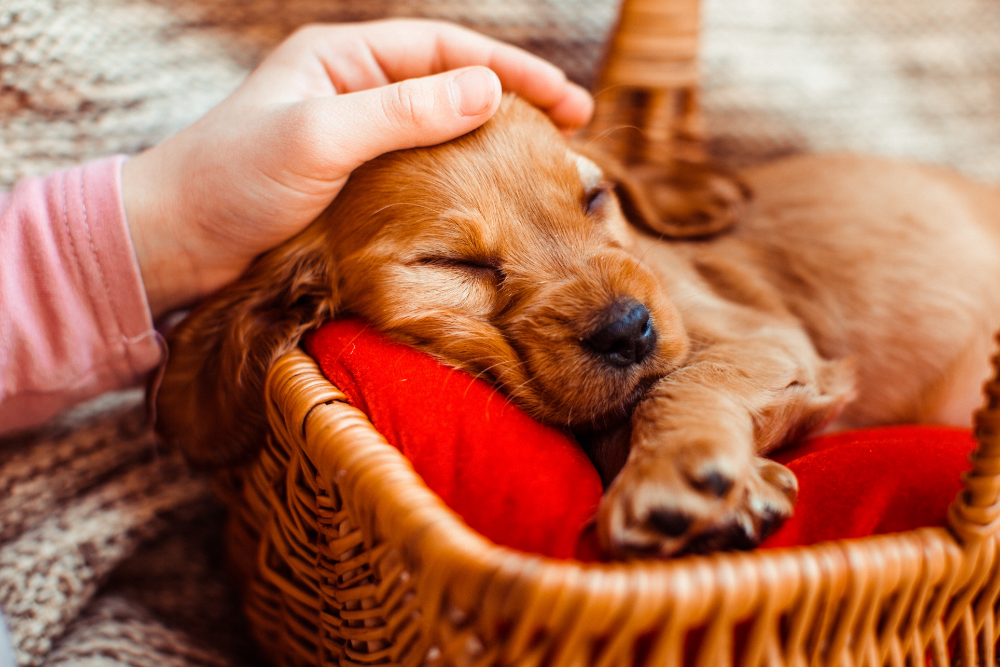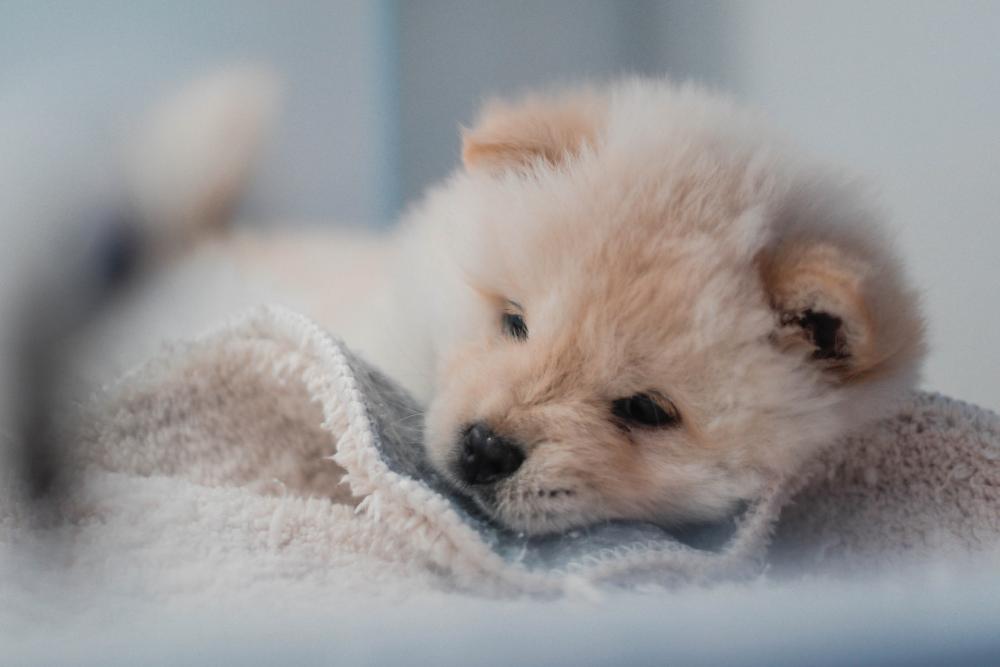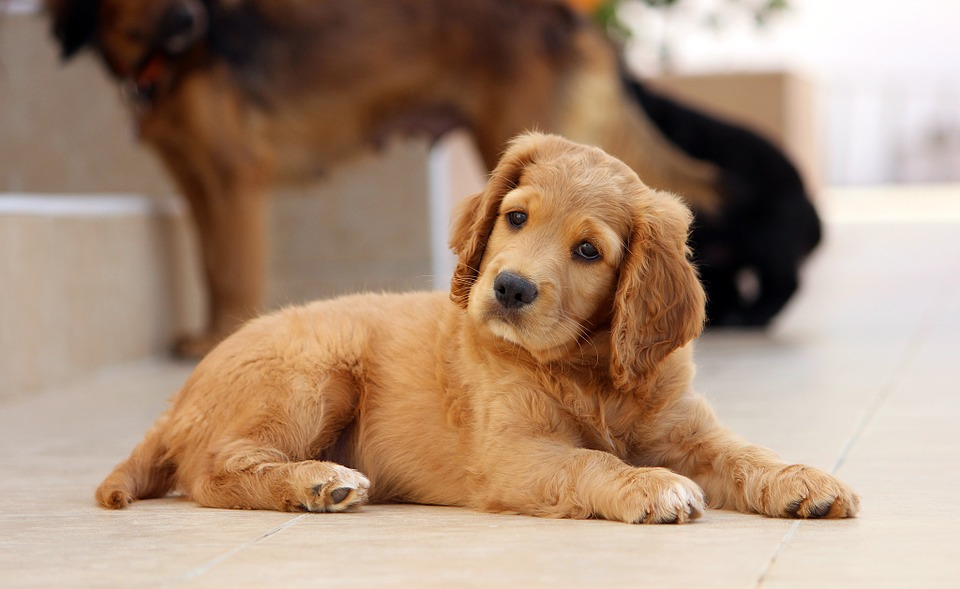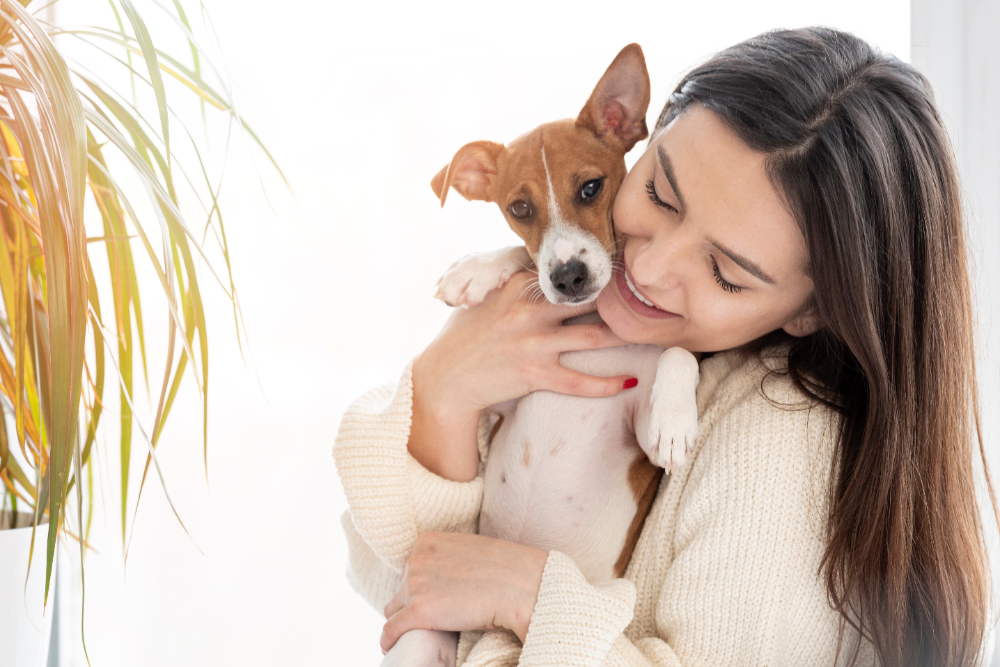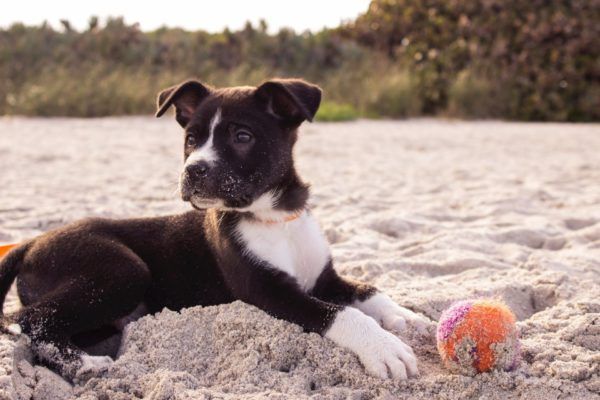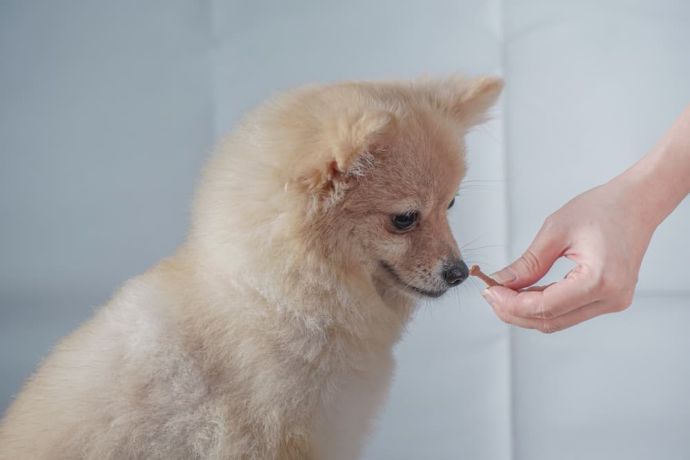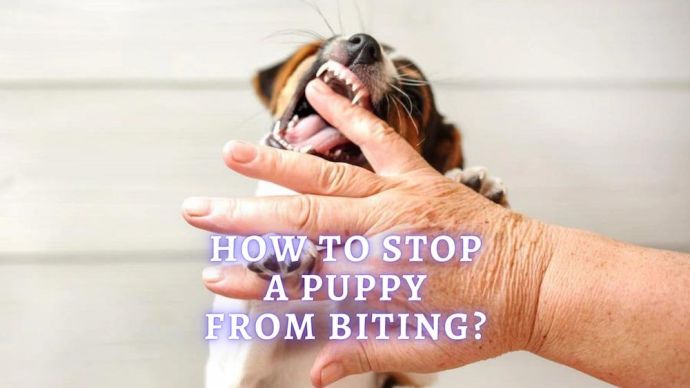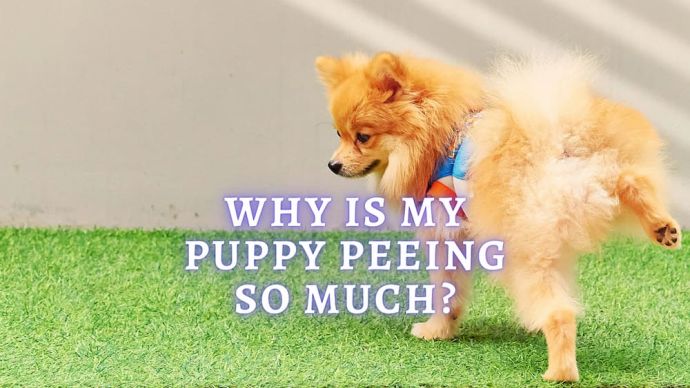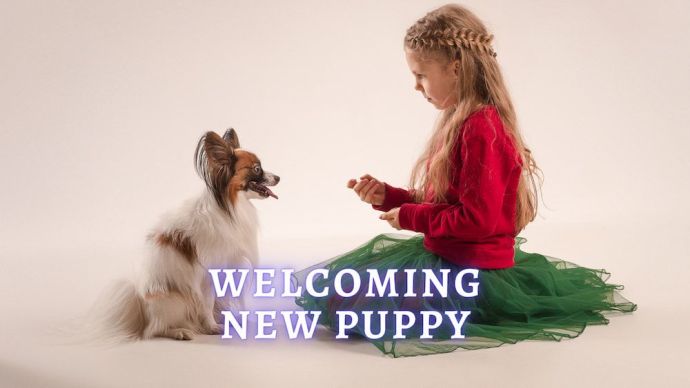Raising a Puppy: Vet Advice How to Raise a Puppy
Written by:
Author: Dr. Joanna De Klerk
Dr. Joanna de Klerk is a professional Clinical Veterinarian. Member of the Royal College of Veterinary Surgeons UK and a member of the South African Veterinary Association. Graduated with a Master of Science in Tropical Animal Medicine in 2018. Professional author, she has been writing in scientific journals, and also several book series. Joanna loves to enjoy time with her young daughter and family in her free time.
View all 10 articlesLearn about our editorial process and veterinary review board.
Viewed: 187
Updated on: 02/23/2021
Having a new puppy is a really exciting time. But parenting a puppy requires some preparation for it to go smoothly. When you bring your pet home for the first time, it will be time for some lifestyle adjustments. But you’ll come to find that these lifestyle adjustments are well worth the effort. Soon they will become good habits which will lay a foundation for your new pet’s healthy development.
What do I need to buy a New Puppy?
You may well feel inundated when you walk into the pet shop for the first time. However, before you get your puppy, you need to buy only a few essentials:
- Dog bed: The bed you buy for your pet does not need to be the biggest one you can find, as your puppy will appreciate the feeling of the snugness of the sides that he feels against him. Ensure it is made of a comfortable material, such as a memory foam inner, and a removable, washable outside cover.
- Dog bowls: Your puppy will need a bowl for water and a bowl for food. These should be relatively heavy or have a non-slip bottom to them so that if your pet is excited about his food, his bowls don’t migrate across the room as he’s eating.
- Collar, harness, and leash: Your puppy will need a collar so that you can place an identification tag on it, but you should never walk him with a leash attached to the collar. His delicate neck structures need to avoid pressure being placed on them, so a harness should be used when going for a walk. A retractable leash, which locks at a short distance, but gives several meters freedom when extended is the best for training.
- Crate: If you wish to crate train your pet, look for a crate that is made from a tough, yet soft fabric, with good ventilation. Crate training is a great idea, as your pet will come to think of his crate as a safe haven. It will also make leaving him alone, traveling, and toilet training easier.
READ MORE: Best Dog Harness for Small Dogs
What preparations must I make around the house for a Puppy?
When making preparations for your new arrival, you must prepare both the inside and outside of your house. Puppies are prone to toilet accidents and so if you have carpets, you might want to think about whether your puppy will be allowed in these areas. If not, placing stair gates in doorways helps to section off parts of the house. If you are going to let him walk around the whole house, then a carpet washer will help keep the carpets clean.
Stair gates can also be very useful for sectioning off the front door. If you live on a busy road, you want to avoid your pet from being able to slip out whenever visitors come to the door. Due to the small size of a puppy, it’s easy not to notice them squeezing past your legs. If you have a gate in your front garden, putting a sign on it to remind visitors to close it is also a good idea.
Finally, checking your garden is vital. Small holes in your fence might not be obvious to you, but puppies can squeeze through surprisingly small areas. Also check your garden securely locks, as if you have a pedigree pet, these have a financial value and can be a target for thieves.
READ MORE: How to Give a Dog a Pill
How do I ensure I buy a healthy Puppy?
Buying a healthy puppy starts with buying from the right breeder. A reputable breeder will be registered with your national Kennel Club, and have a great reputation. You should be able to view the parents and see their health records, including any tests to rule out genetic diseases that they have had.
A reputable breeder has the future of their puppies in their best interests, rather than making a sale. They will know their puppies the best and try to pair you up with one whose personality matches your lifestyle and needs. Spending some time with the puppies will make sure you are a suit each other well and will allow you to pick up on anything wrong with the pet.
Make sure to ask the breeder plenty of questions, such as:
- Has the pet had his first vaccinations?
- Has the puppy been microchipped?
- Has the dog had flea and worming treatment?
- Has the puppy got a healthy appetite, and what is being fed?
- How many litters has the mother had, and has she cared for the pets well?
When you first pick up your puppy, take him to your vets for a check over within the first few days. Your vet will check for an umbilical hernia, heart defects, a cleft palate, and general health. All reputable breeders offer a return policy if there is something wrong with the pet, so this is your opportunity to ensure you have a healthy puppy from the outset.
READ MORE: New Puppy 101
How is feeding a Puppy different from feeding an Adult Dog?
Puppies are still growing, which means they need different nutrients to an adult dog. Protein is important for developing muscles, and calcium and phosphorus are vital for growing bones. These are at different levels in puppy food than adult dog food, which is why it is vital for puppies to always be fed specific food. On the back of the packet, there will be a section called the ‘guaranteed analysis’. The higher the protein content, the better, and ideally this should be from a meat-based protein. The ingredients list is in order of weight, so the ingredient at the top of the list has the most content in the food. Therefore, if you found a food where the guaranteed analysis stated 30% protein, and the top ingredient was chicken, this would be great. Whereas, if the guaranteed analysis said 24% protein and the top ingredient was corn, this is not suitable for your pet.
Starting your pet on a dry kibble will also be beneficial for his teeth. Dry dog food provides abrasion to the surface of your dog’s teeth when he crunches through the kibble. This will slow down the accumulation of plaque build-up and associated dental disease.
Puppies only have small stomachs and fast metabolisms, as well as less able to control their blood glucose levels, and therefore they need to be fed more frequently than adult dogs. As a result, puppies should be fed three to four times daily initially, only dropping to two or one meal per day when they are fully grown.
Puppies can also enjoy treats, and since you are likely to be training your pet, he might end up giving quite a few every day. Choosing a relatively small treat will help prevent most of your puppy’s daily calories coming from his treats. Remember to subtract food from his daily ration if you are using lots of treats.
READ MORE: Best Dog Food for Puppies
What must Puppies be Vaccinated against?
Puppy and dog vaccinations vary depending on the part of the world you live in; however, most vaccinations require a course of two or three injections, each spaced three to four weeks apart. These injections gradually build up immunity to many deadly diseases in the world.
The most common vaccinations that vets vaccinate against are distemper, parvovirus, and hepatitis. If you live in a rabies endemic area, this is also a very important vaccination to include. It is even a legal requirement in some areas. Other non-core vaccines include leptospirosis, coronavirus, parainfluenza and kennel cough. Your veterinarian can discuss whether your pet is at risk of any of these additional vaccines and together you can decide whether they are necessary. You can also read more in our article about what shots do puppies need and when.
How long can I leave my Puppy alone during the day?
Among other reasons, puppies need to be fed several times per day, and so it is not appropriate to leave your puppy alone all day by himself. In addition to that, puppies get bored very quickly and will start to destroy items around your home if left alone for too long. Finally, your dog won’t be able to hold his bladder for extended periods when he is very young, so there are likely to be accidents around the house if you leave him inside for too long.
As a general rule, a puppy under three months, should not be left alone for more than one to two hours at a time. Between three months and six months, this can gradually be increased to leaving your pet for half a day. When he is an adult, it is still not advisable to leave your dog alone the entire day, but if you have no choice, you will need to hire a dog walker or someone to come in halfway through the day to let him out in the garden to the toilet and give him some attention.
READ MORE: How to Teach Dog to use Toilet
How much exercise does a Puppy need?
Exercising your puppy is important for burning off all his explosive energy, but too much exuberance can be detrimental to your puppy’s delicate, developing bones and joints. This can lead to early-onset osteoarthritis, a debilitating joint condition. There are no set rules on how much you should exercise your pet in a day, however, a useful guideline to abide by is one minute for every week he is old. For example, if your dog is 15 weeks old, his daily walk can be 15 minutes long.
In addition to walking your puppy, you may have your eyes set on competitive sports like agility or flyball. These sports should never be started as a pet , and waiting until your puppy is fully grown is important for the proper development of the bones.
Conclusion
There is so much to learn when you buy a puppy for the first time, but while it initially seems daunting, it will all soon become second nature. Puppies can be highly rewarding and bring a huge amount of joy to a household, and starting off his new home in the right way will ensure you have plenty of happy, healthy years to come.
 Puppy Care How Much Water Should A Puppy Drink? Vet Advice On Puppies Daily Water Intake
Puppy Care How Much Water Should A Puppy Drink? Vet Advice On Puppies Daily Water Intake - 421
- 0
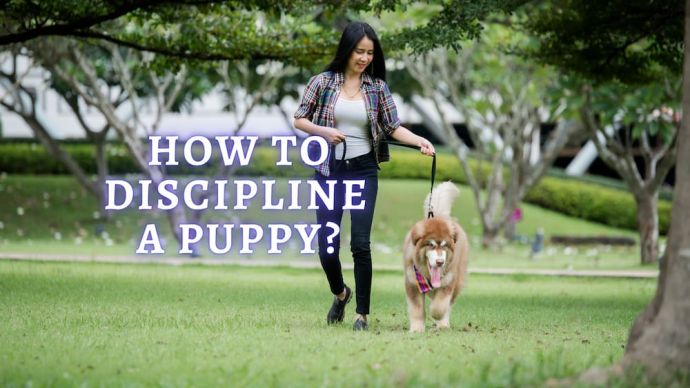 Puppy Care How to Discipline a Puppy? Strategies to Teach Your Puppy Proper Behavior
Puppy Care How to Discipline a Puppy? Strategies to Teach Your Puppy Proper Behavior - 172
- 0
 Dog Veterinary Tips Why is my Dog throwing up: Causes and Preventing (Veterinary Advice)
Dog Veterinary Tips Why is my Dog throwing up: Causes and Preventing (Veterinary Advice) - 23424
- 5
 Dog Care Why Is My Dog Bleeding From Its Butt? Causes and treatment of rectal bleeding in the dog
Dog Care Why Is My Dog Bleeding From Its Butt? Causes and treatment of rectal bleeding in the dog - 22076
- 0
 Dog Care My Dog Keeps Scratching His Mouth: Reasons Why Your Dog Scratching Face
Dog Care My Dog Keeps Scratching His Mouth: Reasons Why Your Dog Scratching Face - 17561
- 1









